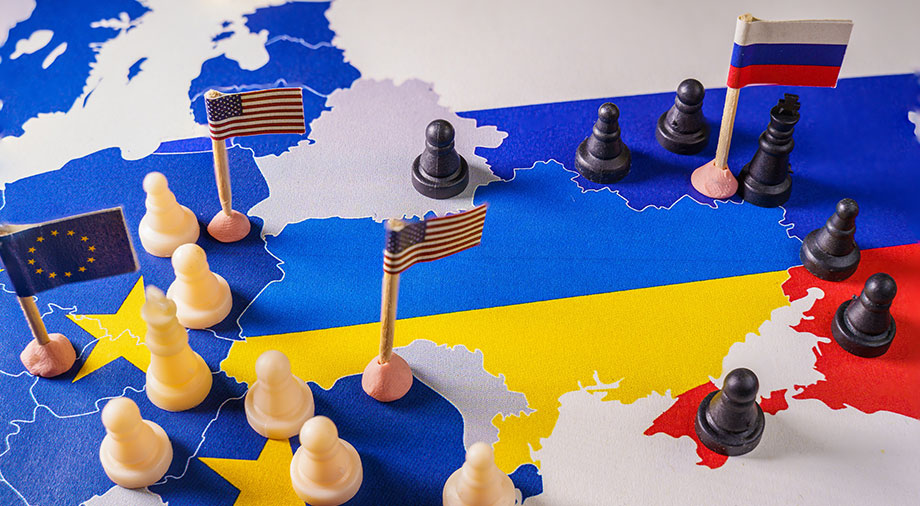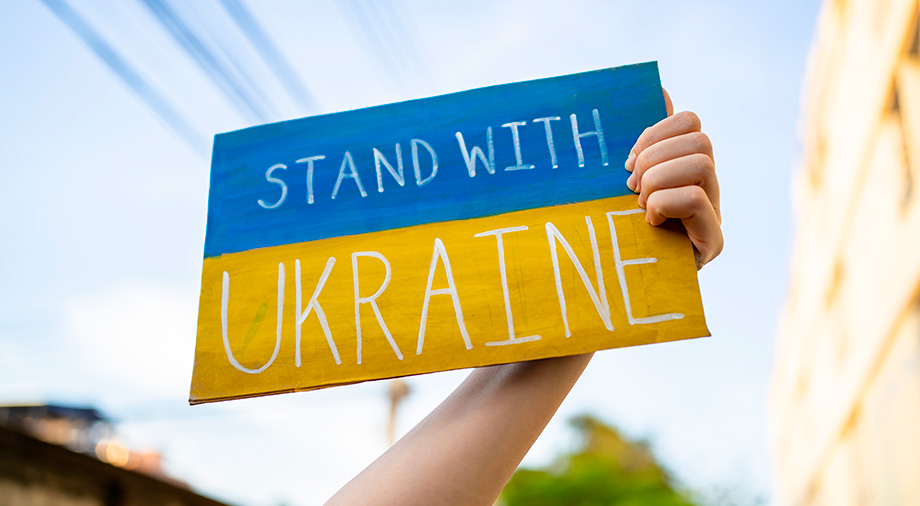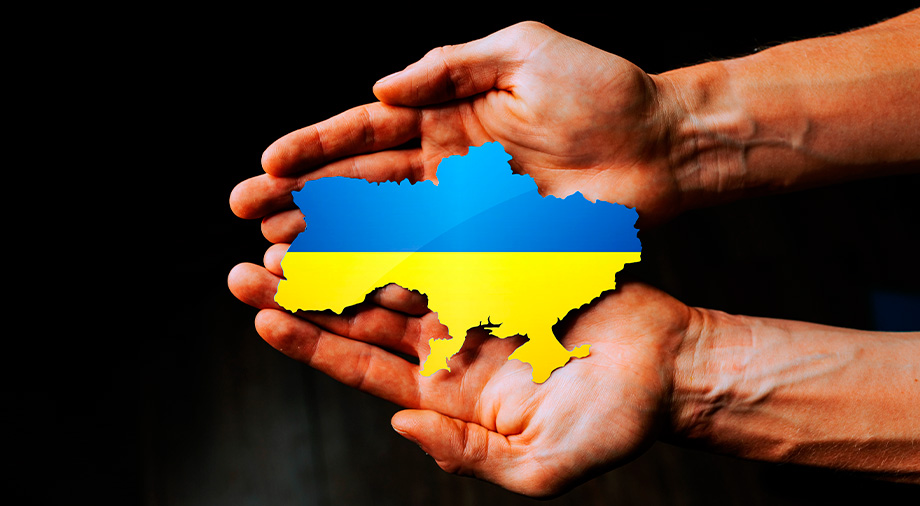As of the end of March, Ukraine’s direct and indirect economic losses in the war with Russia exceeded $600 billion, and these will only continue to grow. According to a report by the UNDP, if the military conflict in Ukraine continues, the country’s economic development could be rolled back by several decades. The continuation of the open conflict could bring more than 90% of Ukrainians into poverty.
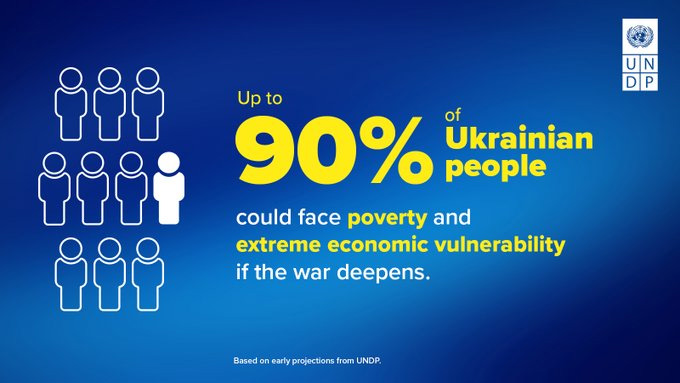
source: twitter.com
In these circumstances, programs for Ukraine’s financial development and reconstruction will play a key role, in particular, on the model of the Marshall Plan, which began in April 1948 and contributed to the rebuilding of European countries that suffered from the devastating consequences of World War II. Can Ukraine count on such support from its partners today?
Marshall Plan in the context of Ukraine
A $13.6 billion one-time emergency financial assistance package for Ukraine was approved by the US Congress in early March. However, this money will only be enough to temporarily meet the basic needs of the Ukrainian economy and the army. Financial assistance from Ukraine’s friends continues to flow to Ukraine almost daily. However, in order for the Ukrainian economy to fully recover from the crisis caused by the war, it needs a systematic rather than ad-hoc approach – a specific and step-by-step plan of action to restore the country’s economy.
British Prime Minister Boris Johnson spoke about the general prospects for the development of such a plan: “An agreement has been reached on the need to show the people of Ukraine now that in order for a free, sovereign, independent Ukraine not to be restored and protected, we will have a Marshall Plan to rebuild Ukraine”.
President of Ukraine Volodymyr Zelensky confirmed the words of his British colleague in his address to the nation on March 9:
“There will be a new Marshall Plan for Ukraine. The West is forming this support package. The world is talking about Ukraine, helping and preparing to help rebuild after the war.”
The options for a strategy to restore the Ukrainian economy and infrastructure will obviously differ significantly from the Marshall Plan for the rebuilding of Europe after World War II. In many ways, these changes are dictated by the different nature of the development of the two conflicts and the level of destruction inflicted.
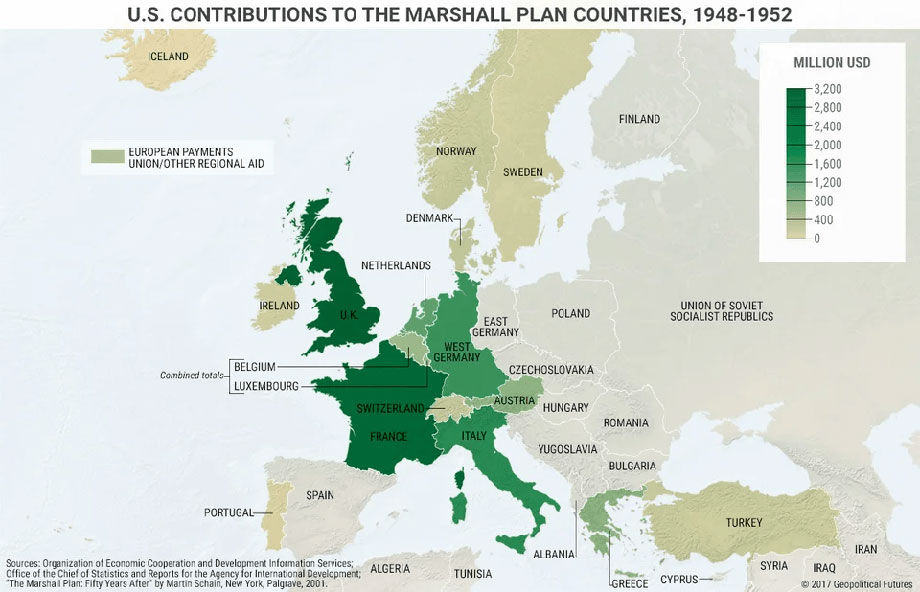
source: www.reddit.com
Ukrainian economist Oleksiy Kushch believes that a Marshall Plan for Ukraine would primarily consist of establishing the fastest and simplest possible for Ukraine’s admission to the EU, as well as its full integration into the European economic space.
In his analysis, Kushch lays out a number of domains in which Ukraine’s friends will have to provide assistance to the country in order for the rebuilding to be as effective as possible:
- Humanitarian: Providing humanitarian assistance to Ukraine, which is currently being allocated by the United States and European countries. This mainly concerns the placement and provision of social protection for Ukrainian refugees, the supplying of medicines, long-term storage products, hygiene products, and clothing to the civilian population of Ukraine and the military.
- infrastructure: Even according to rough estimates, tens of billions of dollars will be needed to repair Ukraine’s infrastructure. At the moment, it is not possible to fully assess the damage caused, since active hostilities are still underway in some regions of the country.
- Technology: In many respects, the rebuilding of Ukrainian industry should be achieved through bringing American and European enterprises into. Moreover, it will be possible to relocate to Ukraine a number of companies which decided to end their operations in Russia as a result of the invasion. Ukraine is capable of becoming a real manufacturing hub for Western countries, in which Ukrainian technological products will be produced through mutually beneficial partnerships.
- Trade: Ukraine’s friends must open their markets Ukrainian goods and relax customs duties. The opportunity to sell Ukrainian goods on the British, American, and European markets under simplified quotas would offer a powerful boost to the development of the Ukrainian market in the post-war period.
- Investment:. Investors will be very reluctant to enter the market of a country that has recently been devastated by a war. That is why donor countries will need to step up and guarantee the return of these investments. This will help reduce risk for and allay concerns of potential investors in the Ukrainian economy.
- Debt relief: Write-offs of Ukraine’s external debts to both private and state creditors will be tremendously helpful. This is, however, the most optimistic scenario. On the other hand, Ukraine is likely to be able to achieve certain concessions to reduce its external debt obligations, as well.
Kushch urges that we not compare future plans for the rebuilding of Ukraine with the Marshall Plan, since the latter contributed more to the development of the American rather than the European post-war economy:
“The Marshall Plan was more a plan to restore the post-war American economy than the European one. This is because the credit multiplier worked in favor of American manufacturers.”
Participation of private business in revitalizing Ukraine
In addition to the role played by Ukraine’s partner states, private business should also contribute greatly to Ukraine’s rebuilding.
Sergey Tsivkach, executive director of UkraineInvest (the government office for attracting investments to Ukraine), reports that his organization is currently contacting investors to entice them to relocate their production to Ukraine and to support its economy. Despite the war, Tsvikach’s office has found investors who want to hold face-to-face meetings and and consultations in Kyiv and several other Ukrainian cities.
Ukraine’s national railway service, Ukrzalisnytsya, has stepped up heroically during the war by moving Ukrainians to safety. As of March 10, it has organized free transportation for over 1.8 million Ukrainians who had decided to leave the hottest combat zones for Western Ukraine.
While at the same time continuing their operations, Ukrainian businesses area actively involved in volunteer activities, along with organizing funds for the post-war rebuilding of Ukraine. One of them is TAPS-Ukraine, created with the assistance of the Ukrainian entrepreneur and head of the Noosphere Ventures investment fund Max Polyakov and Mayor of the City of Dnipro Boris Filatov. The main goal of the fund is to raise $30 million in 30 days to support the public sector, purchase humanitarian aid for millions of internally displaced persons, as well as to provide the Ukrainian Armed Forces with modern means of defense and warfare.
Addressing the world community, the mayor of Dnipro resolutely declared: “If you all cannot close the sky over Ukraine so that the Nazi forces stop bombing maternity hospitals and hospitals, killing our children and the elderly, then at least help with money that will be used to save innocent people. Do not make moral compromises”.
“Appeal of responsibility” to other countries
Appeals to “not to make moral compromises” are being heard at the highest diplomatic level as well. Speaking to the Danish Parliament on March 29, 2022, President Zelensky called upon Denmark to take responsibility for rebuilding the southern city of Mykolayiv, where fierce battles against Russian forces continue to rage on the city’s outskirts.
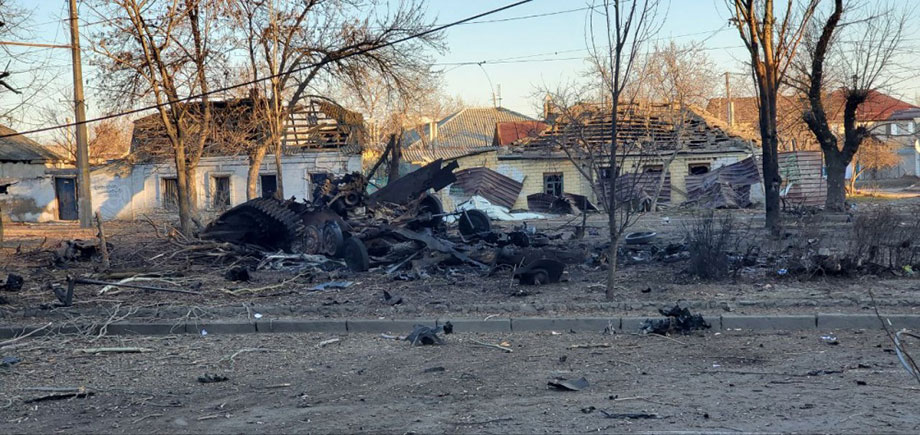
source: nikvesti.com
Mayor Alexander Dulkevich of the Polish city of Gdansk has already expressed the desire to help rebuild Mariupol. Gdansk has already named a street after Mariupol, as well as organized a meeting of the European Commission of the Regions to approve plans to provide humanitarian assistance to Ukrainian refugees.
Germany will also allocate funds from its budget for a project to rebuild Ukraine, as set forth on March 22 during the presentation of the German national budget for 2022. Germany’s Finance Minister Christian Lindner assured that in the future the German budget would be finalized so that financiers would have the opportunity to competently respond to the consequences of the imposed sanctions and Russia’s refusal to supply energy to the country based on settlements in the European currency.
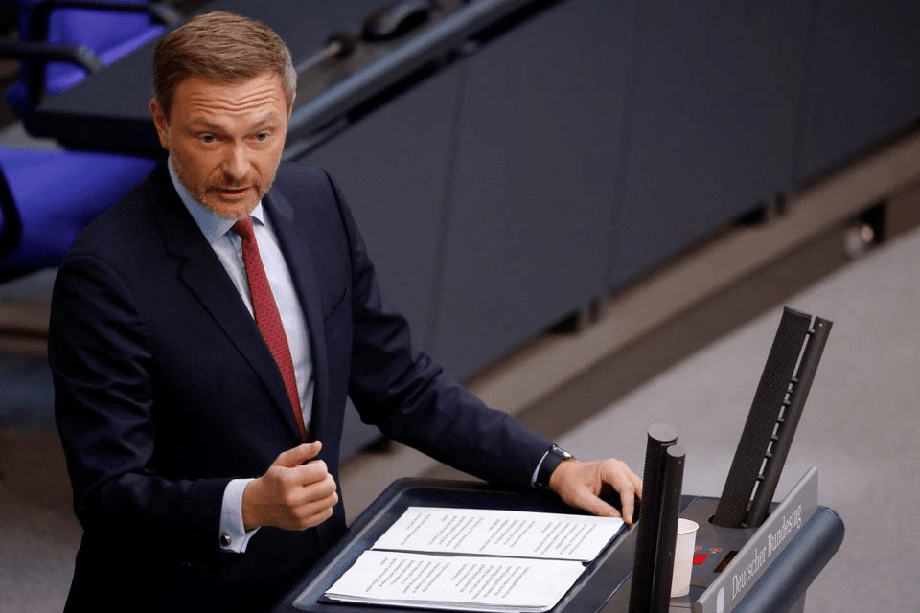
source: www.reuters.com
In bearing their share of responsibility to the country, Ukraine’s Western partners are consolidating financial efforts to get the Ukrainian economy running again. However, the longer the war drags on, the more financial aid will be required to achieve this goal. According to a preliminary forecast by Bloomberg, Ukraine’s economy is set to contract by 20% in 2022. A subsequent decline in economic growth can only be avoided if the war can be stopped in the coming months. Bloomberg estimates that with this scenario (together with the appropriate assistance from the West), the Ukrainian economy will be able to grow by 23% during 2023.
That is why today, Ukraine’s friends need to focus all their efforts on bringing a quick and successful end to the fighting, in order not to pay too high a price for this delay in the future. At the same time, it is critical not only to conclude a peace treaty as soon as possible, but also to do it on the most favorable terms for Ukraine.

